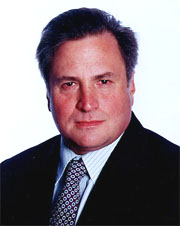 By Dick Morris April 10, 2003
The synapses between the government and the public have narrowed as the war has progressed. People have come to understand that the government says what it means and means what it says. When we are assured that Washington will do all it can to avoid civilian casualties, we are impressed by the use of precision-guided munitions to make good on this promise. When we are told that American troops will be protected and prisoners of war rescued, we are heartened by the low casualty figures and the gallant mission to free Jessica Lynch. When we hear that the war will be won quickly, we watch breathlessly as American troops slice their way into Baghdad. A public conditioned by Lyndon Johnson, Richard Nixon and Bill Clinton to hearing lies from its president now has begun to develop a trust in government that bridges the most fundamental gap in American politics over the past 30 years - the credibility gap of official Washington. When a helicopter goes down, the Pentagon strains to tell us exactly who was killed and precisely what caused the crash. It is almost as if it hastens to give us bad news and conceals the good. We don't hear body counts of enemy soldiers, but when an American dies, the military briefers report it instantly and breathlessly. When something goes wrong, when friendly fire causes American or Kurdish or British deaths, we learn about it immediately - from our own government. When the progress of the war inclines us to euphoria, we learn the bad news of the combat that awaits us in the future - from our own Pentagon. Unaccustomed to hearing the truth from our politicians, we are getting it squarely from our government. Those news organs, entertainers and political figures who appeal to us based on a distrust in government are the big losers in this new era of trust and credibility. When The New York Times implies that a quagmire lies ahead but hints that our government doesn't want us to know the truth or when retired generals darkly hint that plans have gone awry, we have only to turn on our televisions and see the war live and in person, reported with all the accuracy and immediacy we could possibly want. This disjuncture between the dire predictions and ominous warnings we read in the elite media and the reality we see on television footage is widening the credibility gap of the doomsayers and narrowing it for the government. The line "Trust me, I'm from the government" is no longer a joke. Extremists of the left and the right still bemoan our loss of privacy and warn of plots to deceive us. But their prophesies increasingly belong to the paranoia of the way-out left and the far right, rather than a rational calculus based on experience. We are watching, hearing and reading our government telling us the truth, and it is a welcome change for us all. Do we trust our government to intercept phone calls and monitor Internet traffic? How do we balance the need to protect privacy and stop another terrorist attack? Can we trust police and prosecutors not to abuse the new power the Patriot Act gives them? These are the central questions of Homeland Security policy. The reservoir of good will and trust engendered by the tenor and nature of the coverage of the war in Iraq is helping us all to see that the government of Johnson, Nixon and Clinton is not the government of George W. Bush. This government is one that
we can, increasingly, grudgingly, guardedly trust.
|
||
